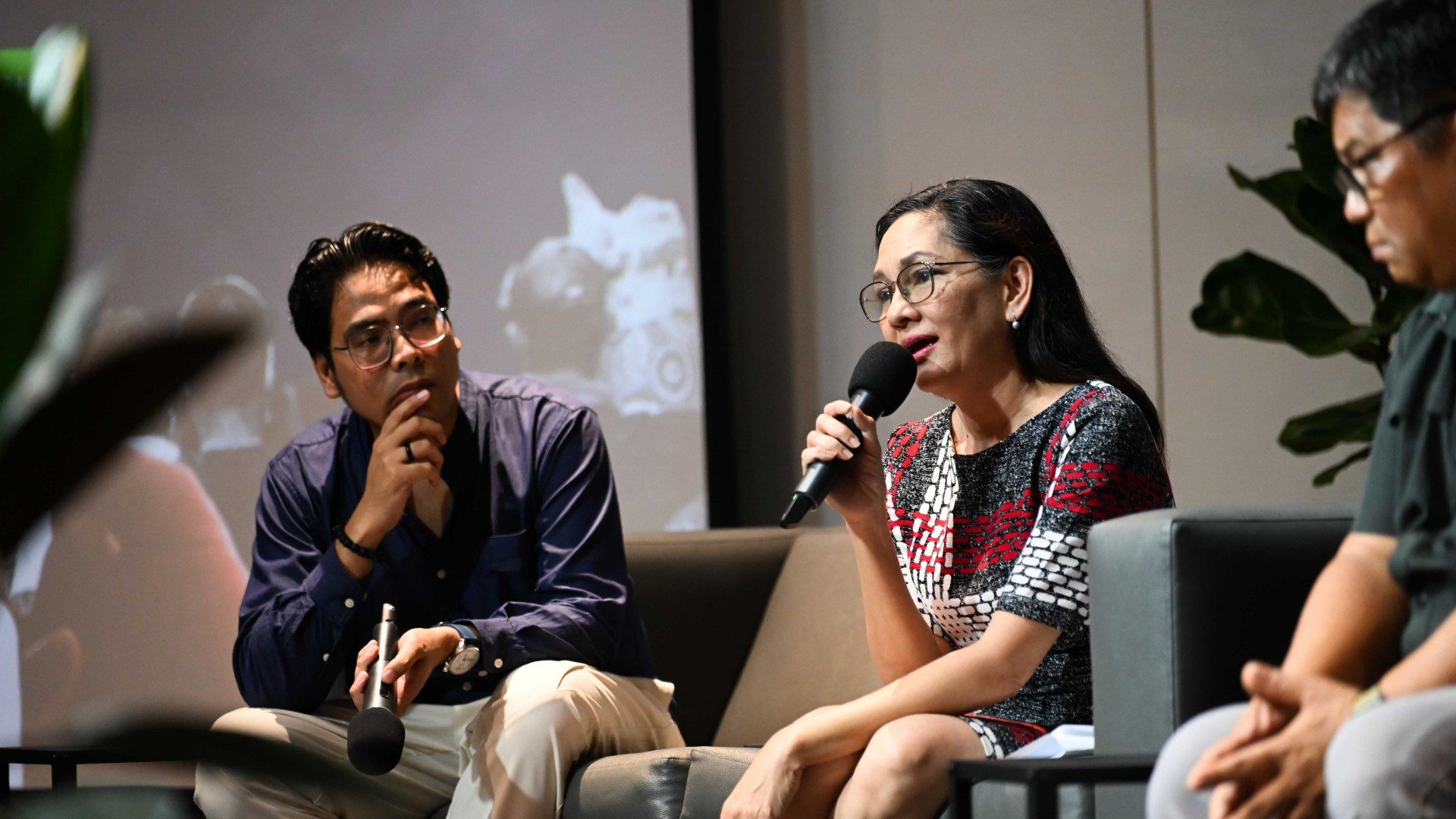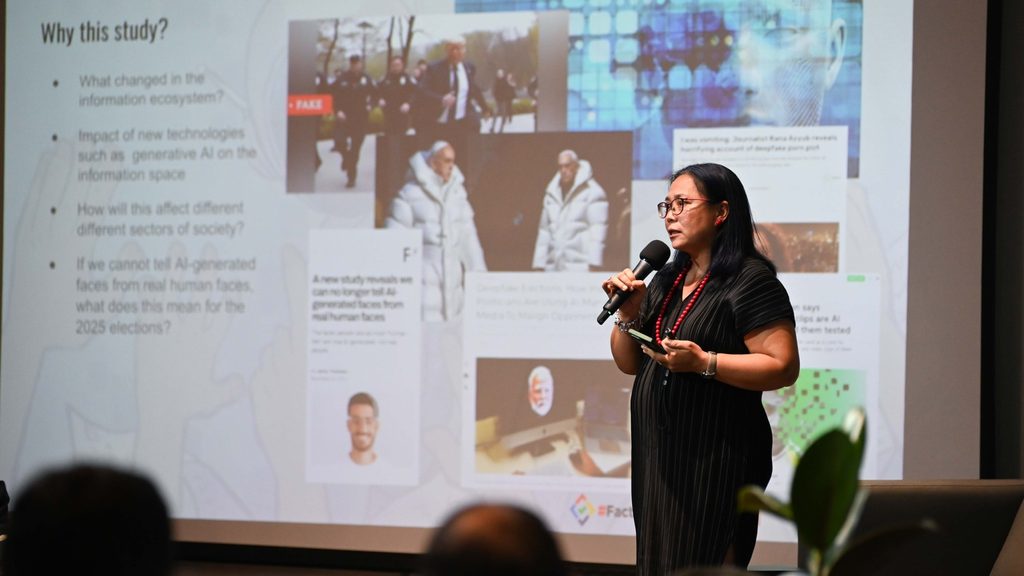SUMMARY
This is AI generated summarization, which may have errors. For context, always refer to the full article.

MANILA, Philippines – Senator Risa Hontiveros at a FactsFirstPH event organized by Rappler on Tuesday, December 19, offered an insight on AI and society: the emergent technology and its deployment are not moving at a pace where humans are able to adjust to it in an effective manner.
“That’s my basic argument against AI. It’s too fast – the velocity of it, and the volume of it – for our capacity to think and feel as human beings, and I basically distrust something like that,” she said.
Every industrial revolution has progressed at increasing, exponential rates. But the AI revolution has moved at such alarming speed that in March 2023, more than 1,000 figures and experts including X owner Elon Musk, Apple co-founder Steve Wozniak, CEOs from Pinterest and Getty Images, and top thinkers from MIT, Harvard, and UC Berkeley called for a pause in its development.
Hontiveros stressed that AI is not at “human scale.” There had been reasonable worry for previous disruptions in industry brought about by new technologies, but in the case of AI, the senator said she hopes that experts will be “able to help put in place those protocols and safeguards to slow things down, decelerate, and bring things down to human proportions.”
In May 2023, Senator Imee Marcos also called for regulation of AI, saying “AI is developing faster than most people can comprehend, and is threatening to take away jobs and turn employment growth upside down.”
Identifying AI-made content
GPT, the large language model (LLM) powering the most popular example of generative AI today, ChatGPT, has illustrated the rapid rise of AI, Rappler CEO and Nobel Peace Prize laureate Maria Ressa explained.
GPT-3 had 175 billion parameters – essentially a measure of how powerful an LLM is – when it was launched in June 2020. GPT-4, released in March 2023 has a trillion parameters. The next iteration, GPT-5, is expected to arrive in 2024 or 2025 with more than 17 trillion parameters.
Currently, people already have a problem discerning what is real and what is AI-generated, and experts remain befuddled as to how this can be solved, with some governments proposing a labeling system for AI-made content.
Gemma Mendoza, Rappler’s head of digital services and lead disinformation researcher, said that fact checkers are very much concerned about the problem. “More and more, humans won’t be able to discern what is synthetic and what is real. Even detection technologies have yet to keep up with detecting what’s real from not real. That’s where we are right now.”

As generative AI improves, discerning what is real and what isn’t may become a tougher task.
Especially with polls looming around the globe, there is a question as to whether society is ready for elections where AI-generated disinformation might just take center stage.
In a Rappler survey, Mendoza also noted that less than 10% said that they have technical understanding of the technology.
And understanding will be key in taming the beast. Mendoza said consultations across stakeholders regarding accountability, data privacy, transparency, regulation, and preventing disinformation are needed. “If the policy suggestions are not drawn from insights into tech, some suggestions may not be enforceable, while some may be counterproductive.”
It’s very important now to ramp up on digital media, technology, and data privacy literacy, and for researchers to collaborate with one another to connect the dots, and not work in silos, as research work will be important for legislation, Mendoza explained.
Formulating AI legislation
Hontiveros said that there’s also a lot that can be learned from lobby groups, experts, advocates and laws seen as pioneering in the field of tech and AI, such as the EU’s Digital Services Act, Digital Markets Act, and the new AI Act. “Learning about these laws will help inform Philippine legislators about how we can adopt and adapt these laws to our particular situations… mindful that we should never stray into the arena of censorship.”
“We, as legislators, need to prepare how to engage in that debate about ethics,” she said. “That’s our duty as legislators: to understand what the norms are, and how we can contribute to putting the muscle of the government or the state in partnership with civil society and the private sector, behind setting up the policies.”
“The point is not to teach technology to become human, it is for us humans to become humane. We need to have safeguards and protocols in place before all the tech companies go crazy monetizing this technology,” Hontiveros said. – Rappler.com
Add a comment
How does this make you feel?


![[DECODED] The Philippines and Brazil have a lot in common. Online toxicity is one.](https://www.rappler.com/tachyon/2024/07/misogyny-tech-carousel-revised-decoded-july-2024.jpg?resize=257%2C257&crop_strategy=attention)









There are no comments yet. Add your comment to start the conversation.